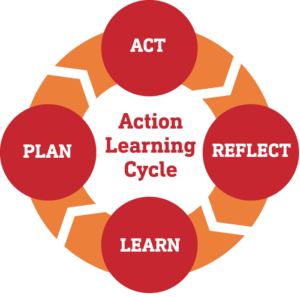Helping create the next generation of changemakers
Globalization, technological progress, and demographic shifts are drastically transforming traditional economies. These shifts risk creating a scenario that leaves people without jobs while creating jobs without people. Canadian universities and colleges can positively influence the current economic transition by providing opportunities for experiential learning, by supporting innovation and leadership, and by encouraging entrepreneurial mindsets in students. Many Canadian universities and colleges are already doing this. At the University of New Brunswick (UNB), the Pond-Deshpande Centre (PDC) is leading the way in its support for experiential learning, entrepreneurship, and social innovation. As it does so, the PDC is redefining the role of the university in the community, in partnership with government, business, citizens and other civil society actors.
The Catalyst
The Pond-Deshpande Centre (PDC) was launched at the University of New Brunswick in 2011. From the beginning, its mandate has been to catalyze and stimulate entrepreneurial activity and innovation in the province of New Brunswick. Specifically, the centre is contributing to a narrative shift on the role of the school and what it means to live and work in New Brunswick and Atlantic Canada. The PDC exemplifies the potential for institutions to use their resources to work effectively with students, businesses, governments, and citizens to address local challenges and catalyze innovation.
“ We believe that the economy of the future is going to need active, engaged change makers. — Karina Leblanc, Executive Director of the Pond-Deshpande Centre

Investing in success
Not only does the Pond-Deshpande Centre (PDC) work to provide aspiring innovators with a sound foundation in technical and social entrepreneurship, it helps new entrepreneurs translate their ideas into companies, products, or services. After only a couple of years, PDC investments are paying off:
- PDC invested $15,000 into a young company called Resson; this catalyzed the company’s early success and ability to raise additional funds. Resson is now worth $50 million.
- PDC invested $15,000 into SomaDetect and, one year later, SomaDetect won a $1-million dollar prize at 43North, an international business plan competition.
- Provincial wellness policies in New Brunswick are shifting because of work being done in PDC’s NouLab.
- Noulab is helping to address the coming shortage of nurses in the province, creating more welcoming schools and neighbourhoods and simplifying the hiring process for newcomers into the private sector through the Economic Immigration Lab.

How does the PDC work?
The PDC serves as a multi-faceted resource for new entrepreneurs and social innovators through four key programs: Student Ambassador Program Provides students with a first-hand look into the world of entrepreneurship as a mindset through experiential learning. Students engage with social entrepreneurship, social innovation, social policy, and have an opportunity to work with companies that prioritize the triple bottom line (social, environmental, financial). Change Maker Fund Provides initial support for young startups to build prototypes, validate market demand, and engage with potential customers. B4C Accelerator Program Helps entrepreneurs accelerate sustainable, scalable high impact ventures by providing the right tools at the right time. NouLab Connects change agents from across sectors to address New Brunswick’s most complex social, environmental, and economic challenges. NouLab strives to create a social innovation mindset and a citizen driven agenda in New Brunswick.
So now what?
 Fundamental shifts to the post-secondary sector are paramount to enhancing the wellbeing of the communities we live in and post-secondary institutions are uniquely positioned to build the next generation’s capacity to create social change. Post-secondary institutions can adapt to current contexts by listening to their communities and regions and working with government and business sectors. Going forward, this will require postsecondary institutions, non-profits, government, and businesses who can:
Fundamental shifts to the post-secondary sector are paramount to enhancing the wellbeing of the communities we live in and post-secondary institutions are uniquely positioned to build the next generation’s capacity to create social change. Post-secondary institutions can adapt to current contexts by listening to their communities and regions and working with government and business sectors. Going forward, this will require postsecondary institutions, non-profits, government, and businesses who can:
- Collaborate to understand and help respond to needs, gaps, and opportunities in local communities and postsecondary institutions
- Test new methods for training and offering opportunities for “lifelong learning”
- Increase opportunities for experiential or work-integrated learning
- Provide incentives for small companies and non-profits to work with postsecondary institutions



